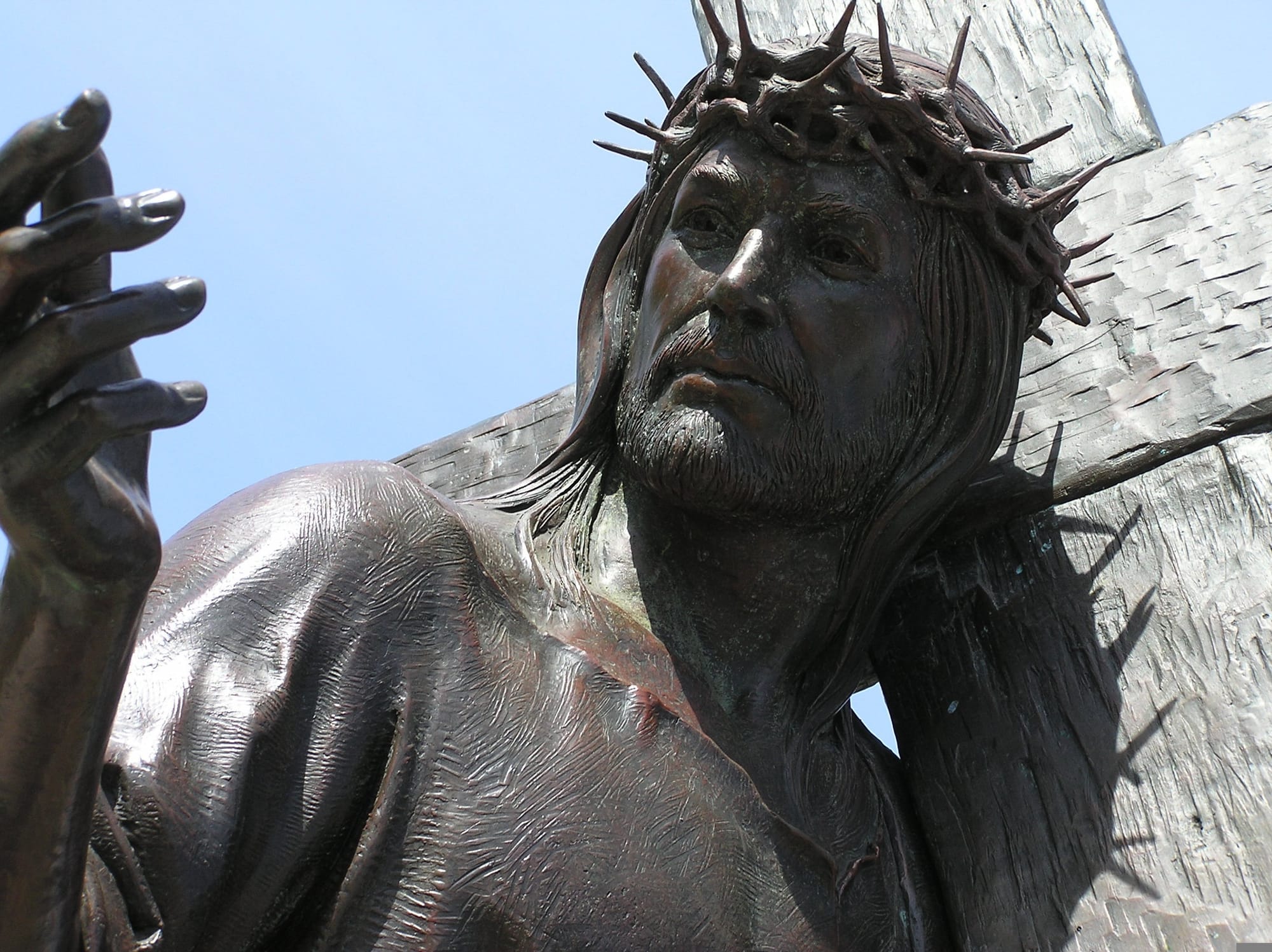Jesus comes down from the cross to speak to Saint Thomas Aquinas and receives the wisest answer a human could say to Him. Patron saint of universities

Born in 1225 in the city of Roccasena, Italy, in the cradle of a noble family, right in his childhood he already proved to be very intelligent and attached to his studies. As an adult, he joined the Order of São Domingos and followed his priestly vocation, but initially opposed by his family who tried to discredit him, even locking him in a cell for two years. No effect. Soon he became one of the greatest doctors of the church and professor of theology, equaled only to Saint Paul and Saint Augustine, demonstrating the total coexistence between the Christian Faith and reason.
Saint Thomas Aquinas was a profound devotee of the Holy Eucharist. Sometimes he put his head inside the tabernacle to feel closer to Jesus, as if he were a child, since He was present there in flesh and blood. He followed exactly what Jesus said:
(Luke, 18, 16-17) : "16. Let the little children come to me and do not prevent them, for the Kingdom of God belongs to those who resemble them. 17. Truly I say to you: whoever does not receive the Kingdom of God like a little child, shall not enter it .”
For all his intellectual grandeur, he claimed to have learned more from this form of prayer than from all his lifelong studies. As a result of his great love for the Eucharist, he composed the immortal masterpieces Pange Lingua and Lauda Sion for the Feast of Corpus Christi.
He has taught at important higher education institutions such as the University of Paris, Rome, Bologna and Naples. On one of these occasions, while in Paris, a group of professors from Sorbone created a problem related to the Transubstantiation of the Eucharist and proposed that it be solved. He sought a longer meditation than usual and wrote the solution with extreme detail, care and responsibility. After finishing the essay, he placed the answer on the altar, in front of the crucified Jesus. He remained there in prayer, as if waiting for a verdict from God. At this moment the greatest miracle of his life occurs:
"(At that time) there were priests watching and it was good that they were. They declared that Christ came down from the cross before their mortal eyes and stood over the paper with the written answer, saying: ' Thomas, you wrote well about the Sacrament of My Body '. According to what has been said, it was after this vision tha t St. Thomas was miraculously suspended in the air" (Chersteton, 1933, p.103).
This version is that described by one of Britain's most renowned book authors from the 1900s to the 1930s, GK Chesterton , who wrote a number of works related to Catholicism, including this biography of St Thomas Aquinas which has come to be considered the most complete. and easily accessible and understood by the general public. However, there is another version that complements this widely disseminated version, which highlights another important point in the conversation between Jesus and the saint:
After receiving God's positive answer regarding his words related to Transubstantiation, Jesus still asks him: "Thomas. What will be your reward?" . When then, watered by his great wisdom, he speaks the best answer that a human could say to Him: "Nothing but Thee, Lord!"
References: G.K. Chesterton, Santo Tomás de Aquino (traducción de Denes Martos); Bíblia Católica, Misericordia.org, Igreja Matriz de Nossa Senhora da Glória, Canção Nova, Padre Reginaldo Mazotti, Tenda do Senhor, Presbiteros.org.br, Padre Alexandre Fernandes, Segue-me, A12